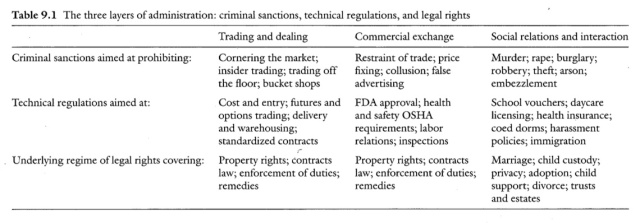I have a post at The Nation I hope you check out, Explainer: How Did Inequality in America Get So Bad? And What Can the Government Do to Fix It? (There’s an audio interview that goes with it.)
In the article I mention and use Dean Baker’s excellent new book, The End of Loser Liberalism: Making Markets Progressive (available as a free pdf). Some links: here is Jared Bernstein and Matt Yglesias each discussing it, and here is a two-part interview at Naked Capitalism (I, II).
There’s a wonky economics way to discuss it – how much does post-Volcker monetary policy have to do with the sluggish wage growth? How much does patents drive income upwards? How much the minimum wage and unionization impact inequality?
But for the critical theory geeks it connects to a much more important way of understanding what is happening in the economy and how to discuss it as progressives. Most of our discussion of inequality and the economy, following liberal political philosophy, assumes that the “market” is given. The big questions are how to split the pie afterwards and what people need as a baseline to participate in this already existing “market.” Hence a lot of fixation on transfers and taxation – things that the government does right after “the market” has taken place, because the government is something that hovers over it instead of constructing it.
But beneath this free-floating “market” is a series of government interventions. The very notion of property rights comes out of government coercion. Robert Hale, leader of the progressive assault on laissez-faire, noted in his 1923 essay, Coercion and Distribution in a Supposedly Non-Coercive State, that the “right of property is much more extensive than the mere right to protection against forcible dispossession…In protecting property, the government is doing something quite apart from merely keeping the peace. It is exerting coercion.”
Though Robert Hale didn’t live long enough to see the digital-rights management community, the man who wrote “The income of each person in the community depends on the relative strength of his power of coercion, offensive and defensive” would understand it completely.
In his book about neoliberal penalty, The Illusion of Free Markets, University of Chicago law professor Bernard Harcourt provides an “archeology of regulation.” In addition to the the regulations of legal rights that exist underneath the market, there’s the enforcement mechanisms on top of it, most visible for what it does (and doesn’t do). Then there’s a middle level of administrative rules, standards, and other technical details that exist, both public and private. A chart from Harcourt’s book, details these three levels with three examples: financial, commercial and social.
But to bring it back to Dean Baker’s book, how these are set-up have massive consequences for income gains, inequality and growth. And these battles – from who gets to vote on the supply of money in the economy to how corporation charters are setup to what constitutes “property” in the internet to what legal regimes constitute “free labor” – are battles that liberals need to be fighting harder on. Because these market setups are changing, and they have been changing in a way that exacerbates inequality, redirecting income upwards and leaving large parts of the economy behind, while claiming the idea that these regimes make markets “free.” Baker’s book gives a roadmap to start fighting these battles.

No comments:
Post a Comment